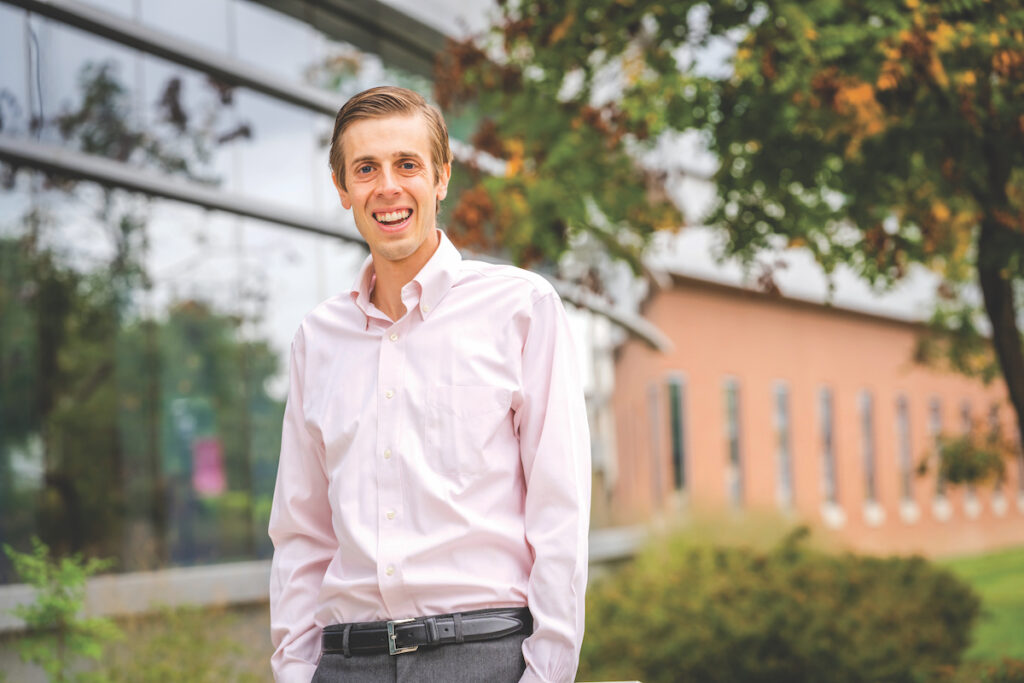
Earning a doctorate has always been part of the plan for Austin DiOrio, ME ’10. While at MIT receiving his MS in aeronautics and astronautics in 2012, DiOrio passed the qualifying exams to pursue his PhD, but life, as it often does, got in the way.
For nearly a decade, marriage (and now parenthood) and a busy career at Johns Hopkins’ Applied Physics Laboratory put his doctoral studies plans on hold. That changed last summer when DiOrio began work in the new Doctor of Engineering program, a collaboration between APL and the Whiting School of Engineering.
Created for midcareer individuals working full time and piloted with APL, the DEng program offers DiOrio the flexibility he needs. “When I first heard about the program, I thought it was too good to be true,” says DiOrio, who works as an aerospace engineer in APL’s Air and Missile Defense Sector. “APL has made it a lot easier to earn my degree while working. The partnership with the Whiting School makes it even better.”
With a focus on practice and application versus preparing for a career in academia or research, the program allows APL staff to continue work on sponsor-facing research. APL also provides financial support and paid leave for students to attend classes and work on research. The program launched in 2018, and the first four graduates in the program earned their degrees last May.
“Getting my degree is still a balance between professional and personal life — I have a 2-year-old now — but this is not a nighttime degree. That’s the point of this program,” DiOrio adds.
The program, which requires a master’s degree and is completed in three years, not the traditional five, is personalized to each student’s interests and APL expertise. DiOrio has two Whiting School advisers in Mechanical Engineering — Jaafar El-Awdy and Ryan Hurley — and an APL mentor, Hasan Oguz. This semester, DiOrio is taking classes and developing his research focus.
“Rocket motor plumes cause damage to surfaces from heat and particles,” says DiOrio, who works on thermal analysis at APL. “That’s the problem I plan to solve and am working out details on my research plan now.”
Bart Paulhamus, chief of APL’s Intelligent Systems Center and newly minted DEng, has sage advice for DiOrio and any students in the program: “This program is not a sprint — it’s a marathon. It doesn’t let up. But it is very much what you make of it, and I am glad to have participated.”




